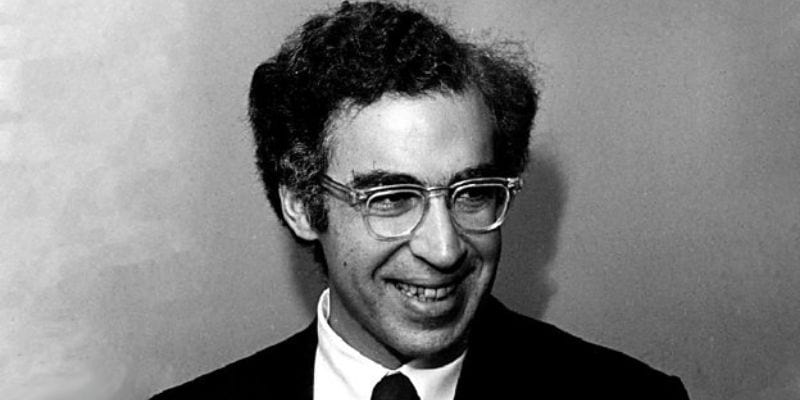Donald Schön biography, quotes and books

Donald Schön (1930-1997) was one of the most influential thinkers who helped develop the theories and case studies of reflective learning within the business services sector. Donald Schön is also famous for his contribution of the development of the single loop learning and double loop learning theory.
Biography
In his younger days, Donald Schön obtained a BSc. Degree from Yale University and a MSc. Degree as his doctorate (Ph.D.) from the Harvard University.
As a philosopher he had always been fascinated by research and this resulted in a scientific career.
During the years of study and research with Raymond Hainer, Thomas Kuhn and Chris Agyris, Donald Schön provided several insights in the fields of behaviour and organizational science.
He introduced important concepts within science and practice such as learning systems, frame reflective practice enquiry and generative metaphors (figurative descriptions of social situations).
Donald Schön and Chris Agyris made in-depth studies of the concept of ‘learning systems’. They both maintained certain ideas about the flexibility of people and organizations.
Life experiences and lessons learned throughout life should contribute to the development of people and organizations in times of change. These ideas have been further developed in the theory of organizational learning.
Both scientists made their contributions to this by developing the theory of single loop learning and double loop learning.
Donald Schön died September 13, 1997 at Brigham and Women’s Hospital after a seven-month illness.
Donald Schön quotes
- “A practitioner’s reflection can serve as a corrective to over-learning. Through reflection, he can surface and criticize the tacit understandings that have grown up around the repetitive experiences of a specialized practice, and can make new sense of the situations of uncertainty or uniqueness which he may allow himself to experience.”
- “Reflective practice is a dialogue of thinking and doing through which I become more skilful.”
- “Our bias toward thinking blinds us to the non-logical processes which are omnipresent in effective practice.”
- “The reflective practitioner allows himself to experience surprise, puzzlement, or confusion in a situation which he finds uncertain or unique. He reflects on the phenomenon before him, and on the prior understandings which have been implicit in his behaviour. He carries out an experiment which serves to generate both a new understanding of the phenomenon and a change in the situation.”
- “Old questions are not answered—they only go out of fashion.”
- “There is a high, hard ground where practitioners can make effective use of research-based theory and technique, and there is a swampy lowland where situations are confusing “messes” incapable of technical solution… In the swamp are the problems of greatest human concern.”
- “Belief in the stable state serves primarily to protect us from apprehension of the threats inherent in change. Belief in stability is a means of maintaining stability, or at any rate the illusion of stability.”
Publications and books
- 1999. High technology and low-income communities: Prospects for the positive use of advanced information technology. MIT press.
- 1996. Organizational learning II: Theory, method and practice. Addison Wesley.
- 1995. Knowing-in-action: The new scholarship requires a new epistemology. Change: The Magazine of Higher Learning, 27(6), 27-34.
- 1994. Frame Reflection: Toward the Resolution of Intractable Policy Controversies. Basic Books.
- 1993. Generative metaphor: A perspective on problem-setting in social policy.
- 1992. The theory of inquiry: Dewey’s legacy to education. Curriculum inquiry, 22(2), 119-139.
- 1991. The Reflective Turn: Case studies in and on educational practice. New York: Teachers College (Columbia).
- 1989. Participatory action research and action science compared: A commentary. American behavioral scientist, 32(5), 612-623.
- 1988. Designing: Rules, types and words. Design studies, 9(3), 181-190.
- 1988. Coaching reflective teaching. Reflection in teacher education, 19-29.
- 1987. Educating the Reflective Practitioner. Jossey-Bass.
- 1985. The design studio: an exploration of its traditions and potentials. London : RIBA Publications for RIBA Building Industry Trust.
- 1983, 1987, 1991. The Reflective Practitioner: How professionals think in action. Temple Smith.
- 1978. Organizational learning: A theory of action perspective. Addison-Wesley.
- 1974. Theory in practice: Increasing professional effectiveness. Jossey-Bass.
- 1973. Beyond the Stable State. Penguin.
- 1971. Beyond the stable state: Public and private learning in a changing society. Maurice Temple Smith Limited.
- 1967. Technology and change: The new Heraclitus. Oxford: Pergamon.
- 1963. The Displacement of Concepts. London: Tavistock.
How to cite this article:
Van Vliet, V. (2012). Donald Schön biography, quotes and books. Retrieved [insert date] from Toolshero: https://www.toolshero.com/toolsheroes/donald-schon/
Published on: 12/14/2012 | Last update: 11/04/2022
Add a link to this page on your website:
<a href=”https://www.toolshero.com/toolsheroes/donald-schon/”>Toolshero: Donald Schön biography, quotes and books</a>











